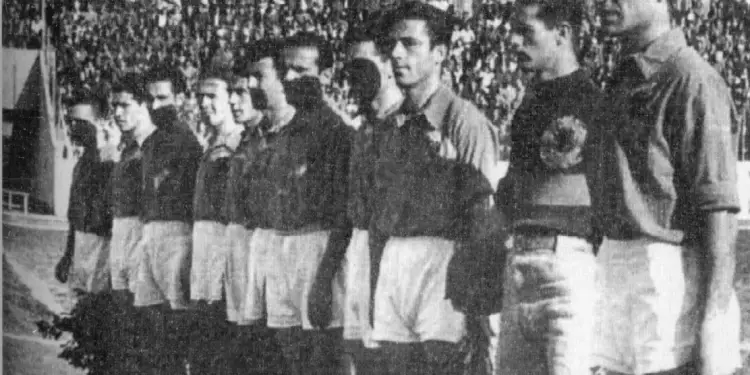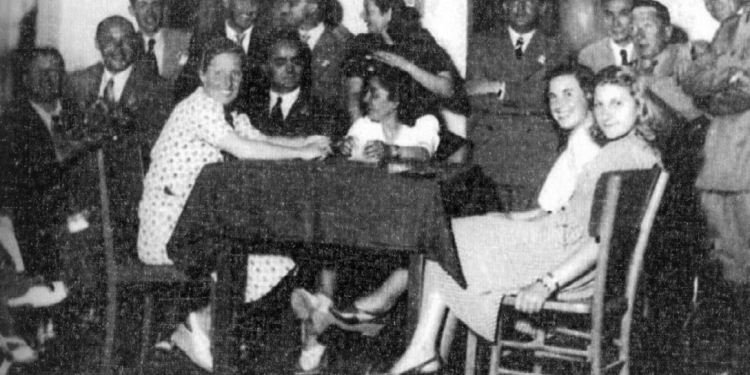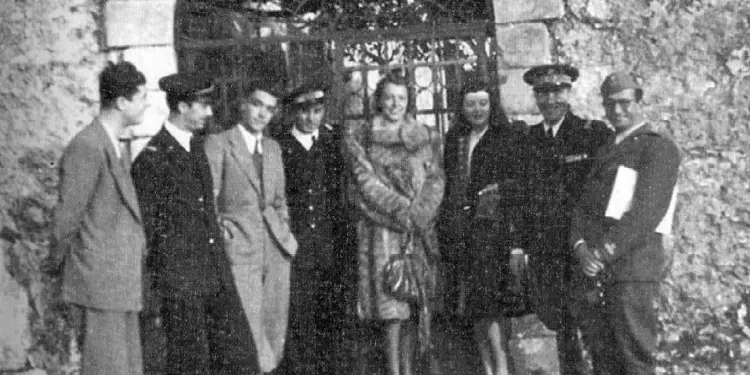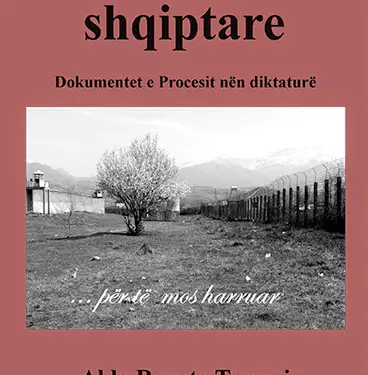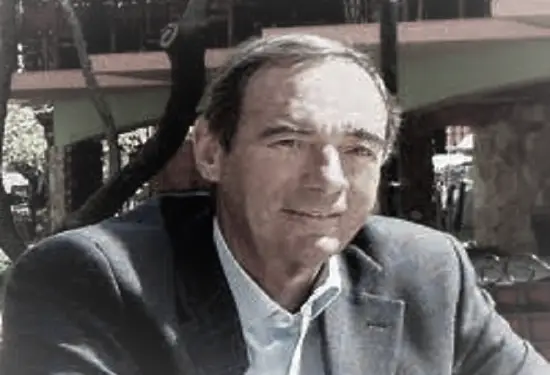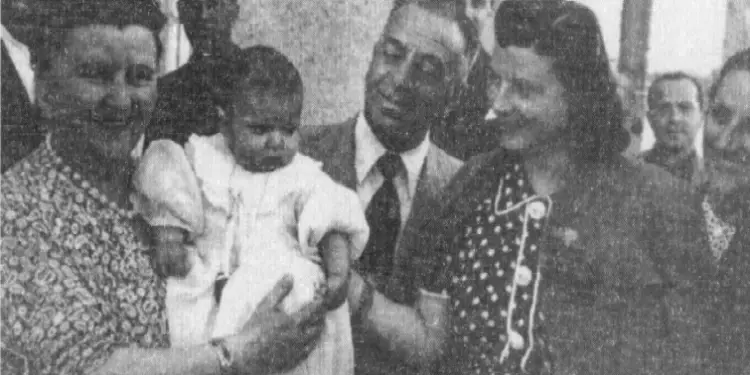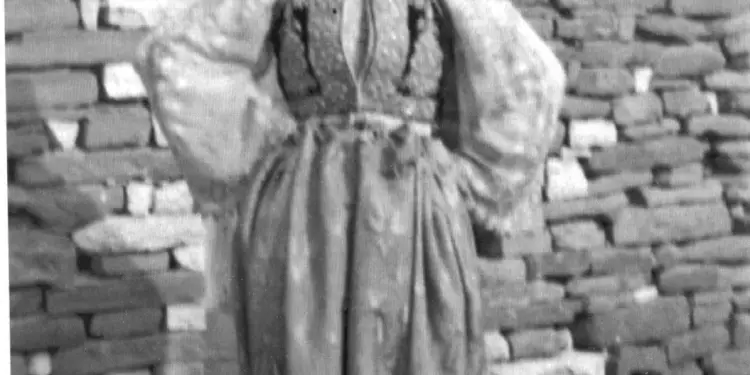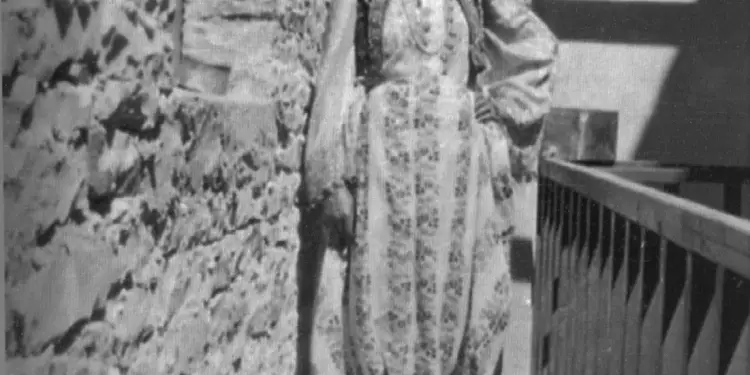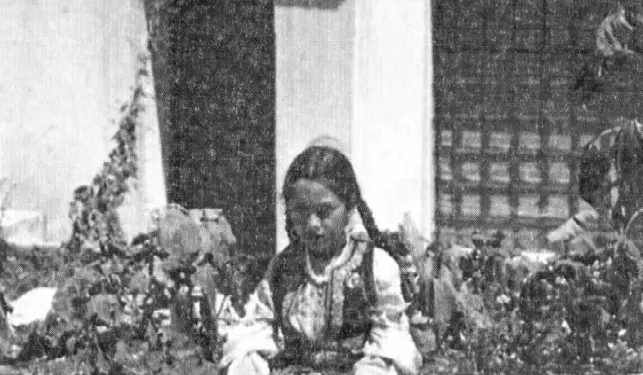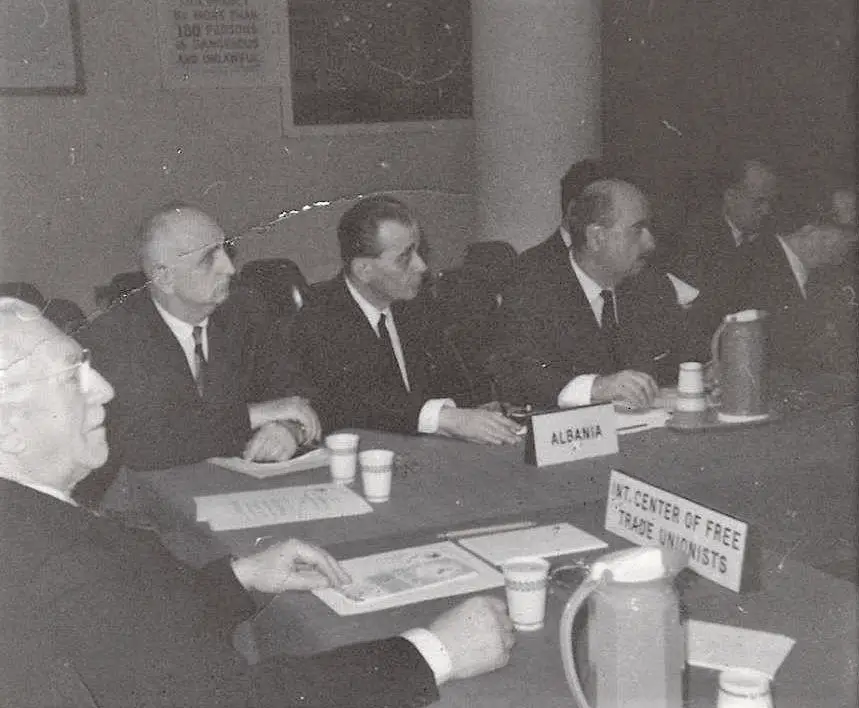By Aldo Renato Terrusi
The sixth part
Accueil
Memorie.al / Fiumicino Airport. Alitalia’s ‘MD 80’ plane is ready for flight. It’s Saturday, November 6, 1993. 11:25 a.m. The commander received approval. The flight attendants remind us once again to fasten the seat belt. The two engines are brought to maximum power, while the noise becomes muffled and deafening. Buttons and controls are tested for the last time according to flight procedures, the brakes are released, the faster and faster movement begins, the acceleration slams the passengers into the back, and the plane takes off. I feel an invisible force lifting me up that leaves me suspended in the void. I look around to see if the other passengers have the same feeling as me. Some read, some look out of the window, some are indifferent, some barely sit still and some, frozen in their feelings, let their fears show. With a wide change of direction, the plane rises in height and heads towards the radio beacon of Bari, then straight to Tirana, our destination.
Unfortunately, dire news came immediately from Germany. Hitler stripped Parliament of all power, more than twenty thousand books were burned in Berlin’s Opera Square, and the government announced Germany’s withdrawal from the League of Nations. On the other hand, Mussolini tried to strengthen the protectorate and in June 1934, he sent a naval squadron to Durrës to prevent Albania, which aimed to get out of the dependency of the Italian state.
Before the military threat, the Albanian government was forced to sign an economic and military agreement. In 1934, the Italian national football team won the World Cup in Rome and the euphoria caused by this event, for some time, took the people’s attention away from the political-military events that seriously threatened. In the same year, Adolf Hitler declared himself the Fuehrer of Germany, assuming the office of head of state. For Hitler, war was inevitable: for the human race, he considered it equally valid with the natural law of survival of the fittest. Germany wanted, among other things, to win back everything that had been denied to her until the beginning of the First World War.
In 1935, Italian forces invaded Ethiopia and managed to annex it without difficulty, as the League of Nations did not lift a finger to stop it. Italy consequently left the Western sphere and the League of Nations was thoroughly embarrassed. The Rome-Berlin axis was born: Italy and Germany began the path of cooperation in the fight against communism and began financing the antigovernmental forces in Spain.
Meanwhile, in Paris, Enver Hoxha was left behind because of the termination of the scholarship established by King Zog I. Unable to finish his studies at the university, in the summer of 1936, he returned to Albania, near his parents in Gjirokastër. He later managed to find work as a French teacher in Korça, but very soon his apparently revolutionary and anti-fascist ideas clashed with Zog I’s government and he was consequently fired.
On April 7, 1939, Italy invaded Albania
In November of the same year, Enveri left Korça and went to Tirana, to make contact with the leaders of the communist groups, that of Shkodra and that of the youth of Korça. On November 8, 1941, the Albanian Communist Party was founded. Enveri, who had played a decisive and important role here, was chosen among the seven members of the temporary Central Committee and very soon stood out as the single-minded leader of the Party.
The country’s first conference, held in March 1943, formally elected him general secretary of the Party, a position he held until his death. In May 1944, the Anti-Fascist Congress of Përmet, then the only legislative body of the Albanian state with the power of a provisional government, appointed him chairman of the Anti-Fascist National Liberation Committee and Commander-in-Chief of the Army. Two years later, the General Assembly formed by the 1945 elections declared Albania a People’s Republic and appointed Enver Hoxha as prime minister.
Xavit’s house
As if in my sleep, I hear a rhythmic and unusual noise coming from the road, like the clatter of horses that comes and increases as the seconds pass. I wake up completely, listen carefully and open my eyes. In the soft light that penetrates through the shutters, I see curiously, as in an old film, the shadow of a horse in a galosh moving from one side of the wall of the room to the other, while I hear the clatter of horseshoes that come and go. , until it finally mixes with the noises of the city.
Tirana is waking up: car horns, bicycle bells, carts screeching, testify to the start of the day. It’s almost 07:00 and I have to get up. I pull back the curtains, open the window and raise the shutters. Not a cloud is visible in the sky, the clear and long shadows of the trees fall on the asphalt; this will be a very beautiful day. A few moves to stretch out from the dullness of the night, the pajamas are off and ready for a desired shower. Warm water, soap, towels. I remove my beard with the electric machine, aftershave, deodorant; my appearance in front of the mirror is encouraging.
I wear lead points, I even wear a tie. Today, my uncle’s close friend, Xhavit Demneri, invited us to his house.
I hear a knock, I open the door. Uncle is ready, all his majesty.
“How did you sleep, uncle”?
“It’s a sin to cry. Even though the mattress was too deep.”
We go down to have breakfast. I ask for my usual tea and yogurt with honey. Uncle coffee and milk. On the way out, we meet Spartacus, who smiles at us from ear to ear:
“How did you spend the night?”
“Very well, thank you.”
“Can I rent you a coffee”?
“Yes, of course”.
Look, I have informed all the players of the former national team and I believe that they will come here very soon”. A nice surprise, I agree.”
He looks at his uncle who, before this unexpected news, was touched.
“Uncle, it will be an important day”
He looked at me seriously, nodded and with a gesture of his hands let me understand: great honor!
Toli, before going to work, came to meet us at the hotel to tell us that he had contacted the commander and that we would have the permits to visit the Burrel prison ready on Friday morning. Then he hurried away after leaving us an appointment for the evening. One by one, timidly, almost on tiptoe, appeared six of the eleven players who had made Albania the winning team in the Balkaniad of 1946. Kisses, hugs and heartbreaking tears were exchanged with sports and personal memories.
The longing reaches its peak when at some point they remember the champions of that time who are no longer alive. A photo as a memory at the bar and the guests return to the salon and continue to recount the dramatic events that belong to the dramatic period of Enver Hoxha’s dictatorship. The atmosphere suddenly becomes serious. The debate revolves around the current government’s efforts to bring the country out of the past. Hotel “Tirana” is close to Xhavit’s house, so, in less than ten minutes, we arrive there. We ring the bell of a main gate, of an old, dilapidated palace. A four-story building with a wide facade, almost ten meters. No one answers and the gate is still closed, but we see Xhavit coming in front of us, from a side street. We follow him along what seems to be a dark path, between two buildings, and we arrive at an equally dark and damp courtyard, from which he enters his house.
The whole family came out to wait for us lined up: the wife, the son’s daughter-in-law, the journalist son, the daughter and a granddaughter. Formal introductions, cordial smiles, polite exchange of ideas. The small apartment is crammed with furniture, mirrors, paintings and furnishings from the 1930s, so much so that you can’t seem to move. It looks more like a warehouse of second-hand goods than an apartment or, in any case, makes you think of residents who have just moved out or are about to move out.
My horror reaches its peak when they show us the bathroom. In a cave-like setting, there is only an alla-turka siphon and a small stone sink; water comes in from an external reservoir, through a rubber tube, or is brought in by buckets. We can barely squeeze ourselves all around the table to eat lunch. The first course is a kind of vegetable soup, the second is roast chicken, with a kind of traditional sake with garlic, cucumbers and yogurt – which they use as an accompaniment to almost every dish – country salad and at the end, a homemade dessert with milk and rice All this accompanied by mineral water, but not wine. Notice that our sweets were not put on the table. Xhavit’s wife explains to us that they will eat them slowly, later. I can’t help but think once again about the poverty that is ruining Albania. Anyway, we uncork the Italian champagne and raise a toast, to health, to the new found friendship, to the family and to the future. I humbly ask the lady of the house for the recipes of the food we ate a little while ago and from here, I am describing them almost faithfully.
Sauce with garlic, cucumbers and yogurt for six people. Peel and cut into very small pieces, two small cucumbers and sprinkle salt on them. Grind six cloves of garlic very finely, add a spoonful of vinegar, 200 grams of yogurt and mix them, after adding four spoons of olive oil. Serve at cool temperature.
Dessert with milk and sugar, for six people. Delicate and light, it is a very good dessert. Put half a cup of rice and a cup of water in a pot. Let them boil. When all the water is used up, add three quarters of a liter of milk and mix. In another pot, pour 12 spoons of sugar, four small spoons of corn flour and a pinch of vanilla and cinnamon, add a quarter liter of milk and mix. We combine the ingredients of the two pots and let them boil until the mixture thickens. Serve at room temperature in cups, with cinnamon on top.
Xhavit’s young woman brings us Turkish coffee, which, although it is quite different from our traditional espresso, has its own specialness. We gladly accept it. The only care you need to enjoy this drink is to let it cool for a few minutes and then drink it slowly, for two main reasons: one, so that you don’t burn badly at all, and the other, so that you don’t choke on the last dregs of coffee, which is not filtered. If you keep these two things in mind, this coffee is drinkable.
Relaxed in the armchair, Xhaviti begins to narrate his vicissitudes and great suffering since the beginning of Enver’s dictatorship.
Xhavit’s son has to go to the newsroom, but before he leaves, he gives us the address of the studio, where we have to meet him for the recording, which is not far from Hotel “Dajt”. Demner’s words highlight the absolute lack of democracy, which has not yet arrived in Albania: personal freedoms and the disappearance of private property.
From the little income of his life as a player, Xhaviti, with the help of his family, was able to buy and manage a hotel, which, during their sports life, had uncle Jakomon as his host. With the advent of the communist dictatorship, all property was confiscated by the government and divided among the citizens. Xhavit’s family found themselves in the middle of the road. The income from that property was no more. Unfortunately, the building was now in a state of disrepair, the residents of which were assigned its premises, had no money to repair it, and the government itself was not in dire need of it.
So, day after day, Xhavit saw his hotel being destroyed, without being able to do anything. The authorities had given him and his family that small, dilapidated apartment in which they lived like a barracks. Now the government had changed and he had hopes that the former properties would be returned to their rightful owners. With sadness in our hearts, we say goodbye to the family and head to the recording studio. Alone, I hope that Xhavit lives long enough to take over his hotel once again, to see it restored and managed by his family again.
The sun is setting on the horizon and there from 17.00, we meet the new Xhavit. He waits for us in a small studio filled with recorders, screens, tele cameras, various tools, daily newspapers, magazines; it seems hard work to move in the spaces that are left unoccupied. A microphone on a tripod and a stationary camera are enough for the interview, which, if edited properly, would be broadcast on the sports edition of the next day, or at most, on the Saturday edition.
Jakomo is asked what he remembers from his sports experience.
“There were no Italian schools in Gjirokastër, so my parents in 1932 sent me to college at the Italian school for boys in Corfu. Aurelia and Vitaliano came with me.
I was ten years old. Since I had not been, they took me to the second grade of primary school, but after two years I had already passed the fifth grade. I finished secondary and higher studies at the Technical Institute of the Brothers of the Christian Schools, until the Italian occupation began in 1939, so I returned to Albania, in Vlora.
Through the ‘Garibaldi’ circle, in 1944 a football match was organized between Italian soldiers and “Flamurtar”, the team from Vlora. The next day, the president and two players of “Flamurtari” asked me if I wanted to play with their team. I could not refuse, because, due to the political situation, this refusal could create many problems for me. For the first time, Vlora won the South championship – at that time the football championship in Albania was divided into two regions: South and North – so we had to play Shkodra, who had won the North championship, but in the end, Shkodra won with the result 1-0.
Then came the Russian team of “Spartak” of Moscow, which the Albanian government had brought with a thousand praises, to celebrate the end of the war there from the end of 1945. In honor of the “Spartak” players, celebrations were held large ones in “Dajti”, with the choicest foods as an indicator of well-being, even though at that time you couldn’t even find flour in Tirana. I played against “Spartak”, in the following days they came to choose me from the Albanian Football Federation, to play with Tirana, always against “Spartak”.
Indeed, even though we lost both matches against the Russian team, we managed to keep our heads high. Immediately after the second match, right in anticipation of the farewell for the Russian team in “Dajti”, I was asked to stay and play for Tirana. They made available to me a room in the hotel of Xhav Demner, who later became my closest friend. I didn’t like being alone in Tirana and begged my family to come too. After a few weeks, my wish was granted and my family was able to move.
They gave us a small, unfinished villa outside Tirana, without window frames; we had to close them with wood and cardboard. After I started playing with Tirana, I was becoming a well-known character even among the merchants, who treated my mother Ema well, often keeping the best basic foods. The coach of the national team, Brogic, a very passionate and intelligent man, since the planned Balkaniad was close, had called to training, in addition to me as a goalkeeper, the most fit players of the time: Boriçi, Biçaku, Bule Vathi, Llambi, Mirashi, Parapani, Demneri, Fagu, Gjinali, Dibra, Spahiu, Tahiri.
Since I had an Italian surname, I could not play in a foreign team, so they decided to change me, and from Giacomo Pozeli, I returned to Giacomino Buzeli. In 1946, the first Balkaniad was organized in Albania and our national football team had to face that of Romania, Bulgaria and Yugoslavia.
For this occasion, the Albanian government made available to the participating teams, a building under construction on the outskirts of Tirana. A team was organized on each floor, while the dining hall was shared.
These nations also had women’s teams that competed in athletics events. The girls were accommodated elsewhere, but they also ate with us. The matches and competitions, which were followed by many people, took place on the sports field “Qemal Stafa”, built by the Italians. I was the goalkeeper on the bench, but since the starter had made some mistakes, the coach told me to go on the field. That’s how I started playing as a starting goalkeeper against three competing teams: Yugoslavia, Bulgaria and Romania.
Our team won against that of Yugoslavia and to celebrate the victory, there was a big reception in “Dajti” with food, dancing and music. We were awarded by the federation, as we had been promised, 25 gold napoleons – about ten million today, but for Albania at that time, it was quite a lot. With that money I was able to buy a “Guci” motorcycle, and I even had other money left over. Memorie.al




